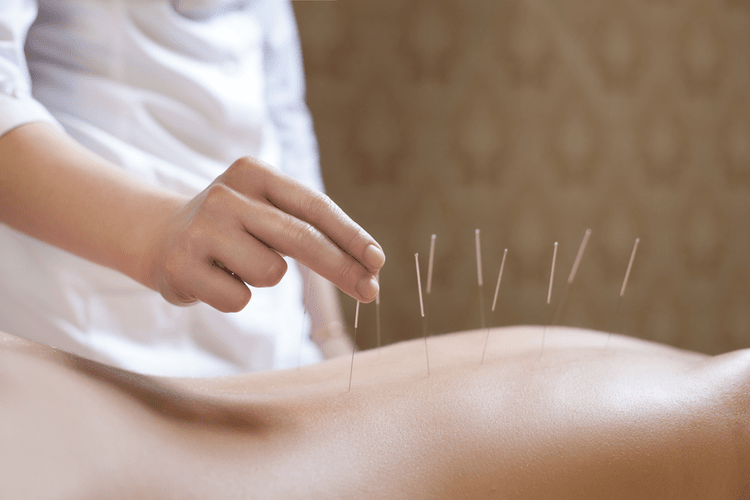The main downside of cold turkey is how unpleasant and risky it can be. If you drink heavily, alcohol withdrawal symptoms can be harsh, dangerous, and even fatal. For this reason, it’s generally best to avoid quitting abruptly, or at bare minimum speak with a doctor first and have someone looking out for you. Those who find that they cannot taper off the number of drinks for any significant length of time have likely developed alcohol use disorder, a condition commonly known as alcoholism. For others, simply cutting back the number of drinks can bring on alcohol withdrawal symptoms, making it more difficult to stop.
- Nicole Lee works as a consultant in the alcohol and other drug sector and a psychologist in private practice.
- Your trusted resource for health and wellness information and the latest medical advances to help you and your family live better.
- If your habits and triggers do skew toward drinking as a coping mechanism for changing moods or personal problems, finding alternatives is even more important.
- If you answer “yes” to four to five questions, your symptoms align with moderate AUD.
- But if you are moderately dependent, you may need to get some kind of support.
- Besides its positive health benefits, it can help you quit drinking after weeks or months.
Expert Tips For Reducing Your Alcohol Consumption
Find a supportive friend or family member to be with you while you withdraw and support your new non-drinking lifestyle. There are so many options for cutting back or quitting alcohol it’s hard to know what will be most effective. If your habits and triggers do skew toward drinking as a coping mechanism for changing moods or personal problems, finding alternatives is even more important. Many people finding working out to be a particularly beneficial resource in lieu of drinking and talking to an emotional health professional may help guide you to appropriate options.
- It is usually better to stop altogether (“cold turkey”) as long as you have medical support.
- We support both moderation and abstinence as goals and, although we cannot provide medical detox remotely, we can help you design an effective tapering schedule to reduce your drinking.
- And practice what you might say as a follow-up explanation if someone ask.
- The effects of alcohol can even make you abusive or cause you to harm others emotionally.
- However, try not to have too many firm expectations, as symptoms can continue for multiple weeks in some people.
- While there are many potential benefits that you should expect to see in your first month of sobriety, the positive effects of stopping alcohol will continue to follow you and grow throughout your life.
Change your environment
- The first step to drinking less is to spend some time thinking about why and how you drink.
- Zero-alcohol drinks are alcoholic drinks with the alcohol removed but which retain a taste similar to the alcoholic version.
- For some drinkers, cutting down on the amount of alcohol they drink simply does not work.
- As new symptoms develop, they will become more and more intense as withdrawal progresses.
- Remind yourself of why you want to cut back, talk to a friend about it and distract yourself with a hobby or exercise, the NIAAA suggests.
- If you or someone you know is quitting alcohol and experiences seizures, DTs, hallucinations, or other major effects, seek immediate medical attention or call 911 for help.
- Tapering helps people stop using alcohol and other substances in small and manageable steps.
Tapering or weaning means ramping down your alcohol use until you get to zero—or to a more moderate level of drinking https://magazin-bezhimii.ru/catalog/bioprodukty/ledency-i-napitki/karamel-ledencovaya-healthberry-ecodrops-brain-activity-30-sht that you prefer. That said, tapering off alcohol doesn’t completely eliminate withdrawal symptoms. Alcohol withdrawal is dangerous and it’s important to be careful throughout the process.

Alcohol Withdrawal Timeline: What Happens to Your Body When You Quit Alcohol?
AW is often treated, discussed and studied as an entity distinct from alcoholism treatment. One should remember, however, that withdrawal and its treatment represent a brief period of time (i.e., several hours up to a few days) in the alcoholic’s drinking career. Researchers do not yet know whether the choice of detoxification method has https://mobaon.net/drug-rehab-center-life-saver-for-drug-addicts/ an impact on long-term patient outcomes. For example, one may speculate that early treatment may prevent more serious symptoms during subsequent withdrawal episodes. Effective treatment of withdrawal only addresses the first of these reasons (Dupont and Gold 1995). Accordingly, appropriate recognition and treatment of AW can represent an important, albeit small, first step toward recovery.

Your Blood Pressure Will Decrease

If you have a severe alcohol addiction, it might be best to seek professional addiction treatment. The main difference between tapering and quitting alcohol cold turkey is how fast you quit. Cold turkey is a common slang term for quitting alcohol (or any substance) all at once.

If you identify with any of the scenarios above, try the expert tips below for reducing your alcohol consumption (or even eliminating it altogether). To determine whether—and where—you fall in the alcohol use disorder (AUD) spectrum, answer the following questions. By Buddy TBuddy T http://teamofthebest.ru/how-do-you-get-alcohol-out-of-your-system-fast/ is a writer and founding member of the Online Al-Anon Outreach Committee with decades of experience writing about alcoholism. Because he is a member of a support group that stresses the importance of anonymity at the public level, he does not use his photograph or his real name on this website. If drinking has become a big part of your life, try substituting other activities during those times when you might usually drink.
How can I increase my chances of success in reducing the amount I drink?
Unfortunately, there’s little to no evidence that tapering off reduces the effects of alcohol withdrawal, some of which can be severe or even life-threatening. Quitting with proper medical supervision may be more important than whether you stop gradually or all at once. People who have alcohol use disorder that goes undiagnosed may have an especially difficult time cutting back on their alcohol consumption. In many cases, people with a moderate to severe alcohol use disorder may be advised to undergo medical detox, where they slowly rid the body of alcohol under medical supervision rather than a taper. If you’re struggling to stick to a taper or do not trust yourself to moderate your alcohol use, having strict supervision and support can help you meet your recovery goals.
Essentially, tapering provides less intense withdrawal symptoms but over a longer amount of time. If you find that you are a person who cannot taper their alcohol consumption consistently, or if you find that you begin to experience withdrawal symptoms by merely cutting back, don’t give up. You don’t have to let the fear of alcohol withdrawal stop you from cutting back or quitting. If you want to change your relationship with alcohol, it’s important to have an honest conversation with a doctor about your drinking habits before you start tapering off. They’ll be able to help you create a tapering schedule that won’t only raise your chance of success but also avoid severe symptoms. If you’ve been drinking heavily for a long time and think you might experience withdrawal symptoms, it’s best to talk with a medical professional before you begin a taper.
